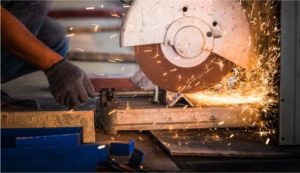Equipment Malfunction – The Most Overlooked And Ignored Third-Party Product Liability Case
June 13, 2012Design Defects vs. Equipment Malfunction
The majority of third-party product liability cases are design defect cases. In a design defect claim, an injured person is hurt as the result of a defective machine lacking adequate safety features. To establish a design defect claim, expert testimony is required.
However, there are certain types of product liability cases where an injured person does not need to present direct evidence or proof of defect: equipment malfunction cases. In such cases, expert testimony typically is not required; although, for reasons that follow, it is helpful to have an expert address this issue.
Generally speaking, equipment malfunction arises in several contexts. The most common type of malfunction is when a piece of equipment “double trips” or recycles on its own. When a machine “double trips” or recycles, the injured person has a strict liability claim for malfunction. Likewise, if equipment starts up unexpectedly or shuts off by itself, and an injury occurs, then a malfunction claim may exist. There are also claims of malfunction when equipment “indexes” or moves because of a mechanical, pneumatic, electrical or hydraulic malfunction.
Proving an Equipment Malfunction Claim
When attempting to identify an equipment malfunction case, it is vital to understand the difference between a true equipment malfunction and operator error. While an injured person is not required to prove a “defect” in a malfunction claim, the injury victim must prove that there were no secondary causes for the equipment malfunction or that it did not occur due to abnormal or unreasonable use.
An example will clarify this distinction. If a machine operator’s fingers are amputated in a point-of-operation area due to the power press’s ram double tripping, then you must show that the double trip occurred because of a mechanical or electrical issue. However, if the machine operator is riding the foot pedal then that will likely explain that the double trip was because the injured person operated the foot switch incorrectly causing two consecutive strokes of the ram.
Likewise, if the machine comes on by itself, you want to be able to establish that another worker did not turn on the equipment remotely or that the machine was programmed to come on at that stage, phase or junction of operation.
After an accident, an employer should immediately eliminate any other possible explanation for why the equipment malfunctioned. If a person is injured and believes that the product or equipment malfunctioned, then a request should be made to the injured person’s supervisor, union personnel or employer to have the equipment immediately locked out and tested to confirm a malfunction. If an employer is able to demonstrate that the equipment malfunctioned after the worker’s accident, then this provides very credible and convincing evidence that the equipment involved in the injured person’s accident did, in fact, malfunction.
Equipment malfunction claims are easier to establish when the equipment is relatively new or recently purchased. Conversely, an extremely old piece of equipment without any prior instances of malfunctioning will provide a difficult obstacle to overcome in trying to establish a malfunction claim. Practically speaking, the older the equipment, the more likely one will be faced with a defense that the alleged malfunction was actually due to improper maintenance and repair of the equipment.
Also remember that the inability to prove an equipment malfunction claim does not mean that there is not a products liability claim. The injured person can still pursue a design defect against the equipment manufacturer. An example is when a stamping machine double trips. While the machine operator stepping on the foot pedal too quickly may have caused the double tripping, a guard still could have prevented his accident. Such guards are typically designed to interface with the point of operation after the food pedal is depressed but before the ram comes down onto the work piece; thereby safeguarding the point-of-operation area.
Call an Experienced Philadelphia Products Liability Attorney
Because of the intricacies of the law and highly technical aspects of machine malfunction claims, an experienced products liability attorney is essential to establishing your case. If you have questions about potential machine injury claims, contact Richard Jurewicz at the Philadelphia personal injury law firm of Galfand Berger LLP by calling 1-800-222-USWA (8792) or emailing him at rjurewicz@galfandberger.com.
 Google Screened
Google Screened

 By
By